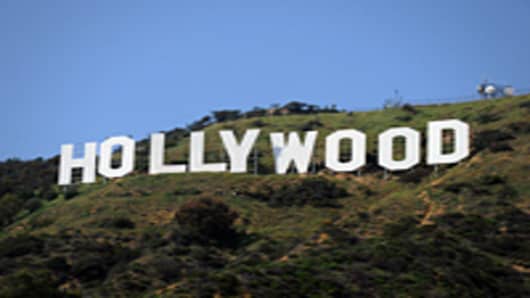With ongoing Middle East unrest, crisis in Japan, concerns about the housing market, and fear of inflation, media companies may be a safe haven for investors.
Despite the upheaval roiling the markets, Wall Street analysts continue to issue upbeat reports about media companies, and even the negative reports don't mention the headlines — they simply don't have the exposure to Japan and the rest of the market instability as many other sectors.
Today Janney Capital Markets analyst Tony Wible issued a report saying that media stocks look attractive because of its lack of exposure. Wible focuses in on Disney, Time Warner, and Viacom all particularly appealing because of their healthy dividends, robust balance sheets, and the fact that they're trading below historical averages. Wible doesn't mention media distribution companies like Comcast(*Note: CNBC and NBCUniversal are both owned by parent company, Comcast), Time Warner Cable or Netflix — but they have very little to no exposure overseas.
Even Disney, which gets paid a licensing fee for its Tokyo parks has limited downside — Caris & Company analyst David Miller says that of every 30 days the Japan parks are closed, that only affects Disney by 1 cent per share.
Here's why Wible believes media is a safe haven:
Limited Exposure to Japan — Unlike Sony or Boeing, media companies don't rely on Japan for many of their products.
The biggest risk is disruption to Blu-Ray DVD deliveries — but the discs are now produced all around the country. And Japan contributes just a small percent of the foreign box office.
And though there are two Disney theme parks in Japan, the media giant's risk there is mitigated by the fact that Disney doesn't operate the park, but simply receives royalties.
Limited Exposure to Oil — Unlike so many consumer products companies, media giants have little exposure to rising oil prices. Media companies costs are tied largely to labor costs. Disney faces the biggest exposure here with its theme parks — higher oil prices mean people may be less likely to drive to the parks for vacations this summer.
Little Downside from Inflation — Media companies have a strong track record of being able to pass along their cost increases to consumers. The fact that movie ticket prices have continued to gradually rise, with consumers only balking at the very high end, is a sign that studios can afford to inch prices her.
That's not to say there aren't concerns. The media business is highly reliant on advertising, and if the economy craters companies will be more restrained with their advertising spend. But if the global upheaval continues people will want to hunker down and watch TV and escape at the movies.
Questions? Comments? MediaMoney@cnbc.com




